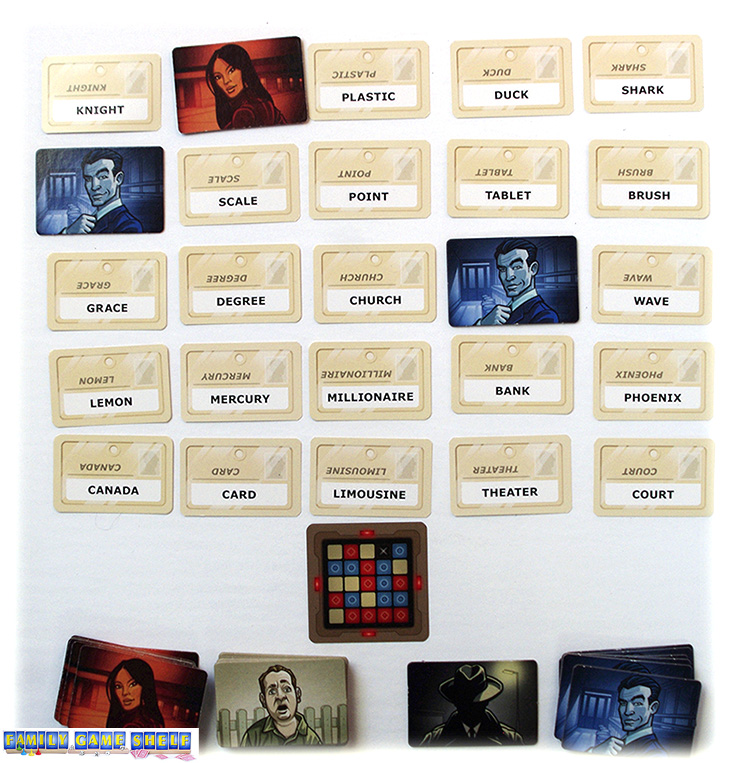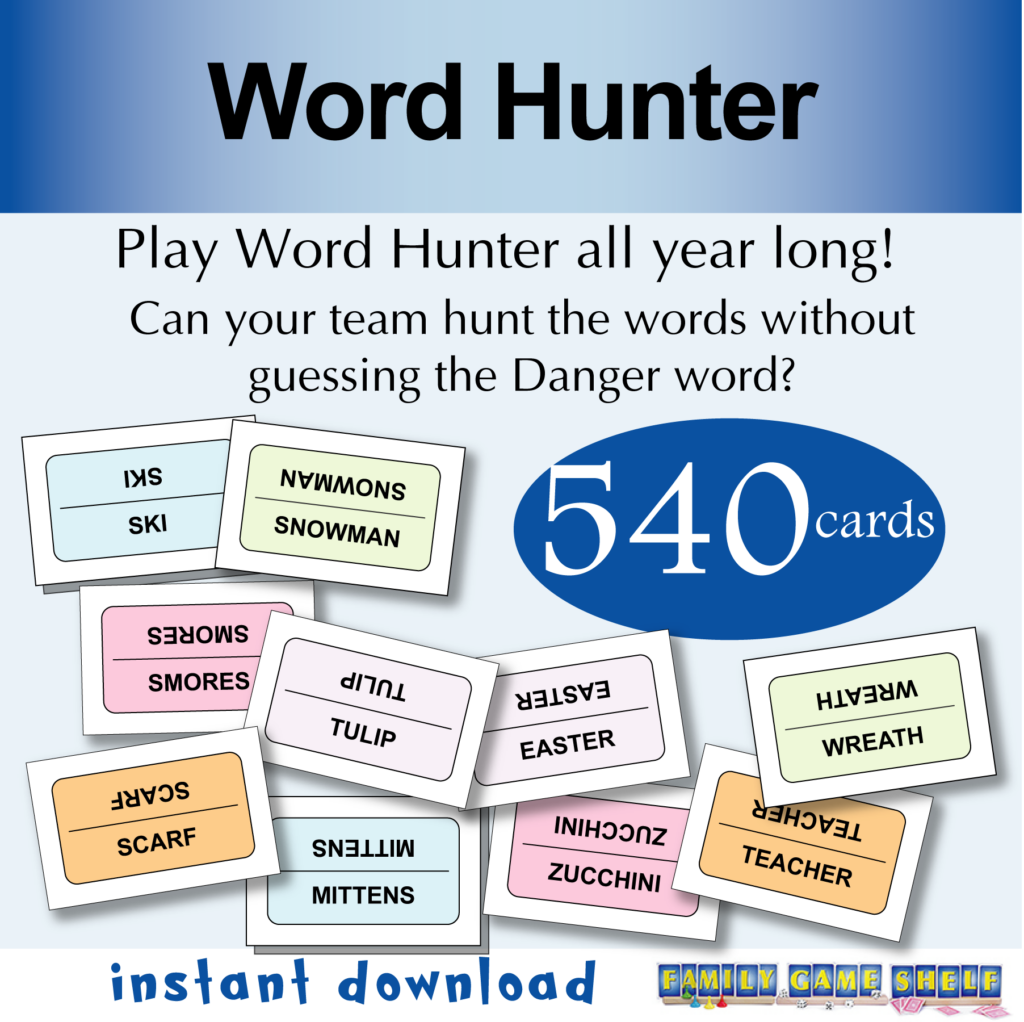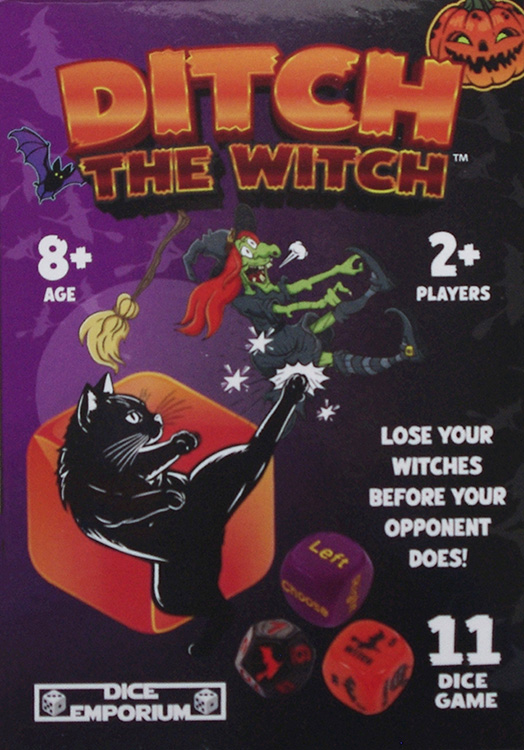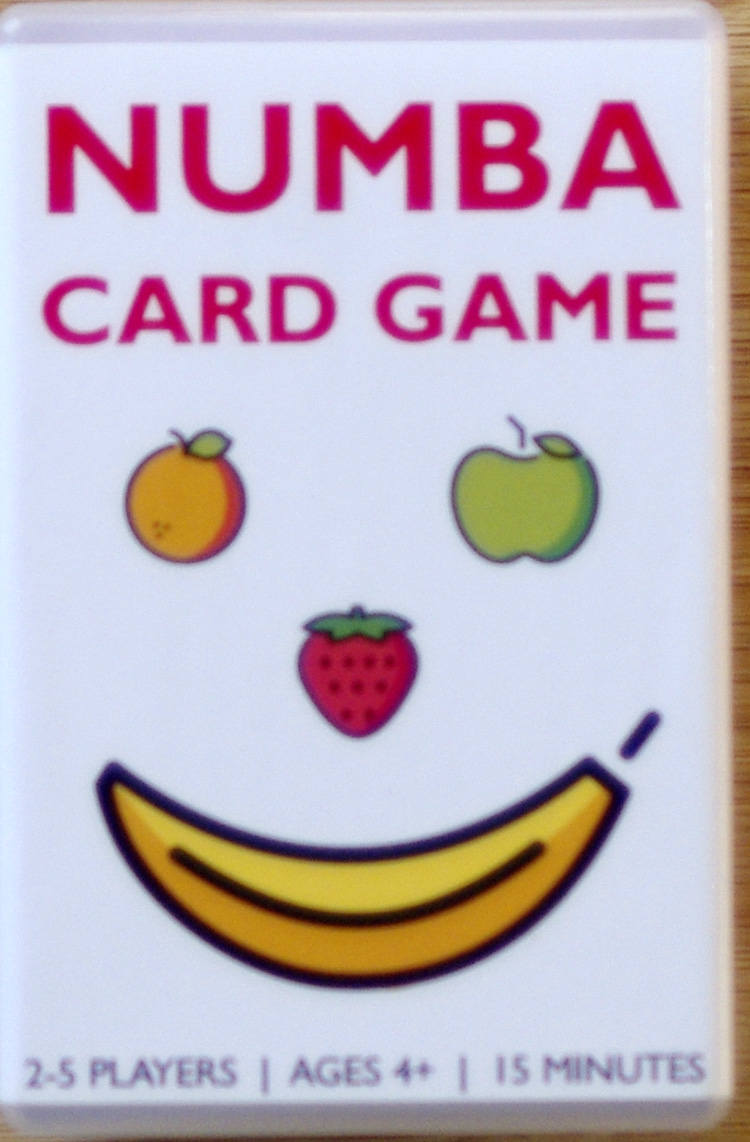This game review is for Codenames, a fun word game for 2 to 8 or more players aged 10 and up.
Do you love word games? We do Taboo, Scattergories, Categories, anything that doesn’t have to do with spelling. (Learning disability here.) So when a family member introduced us to Codenames we instantly fell in love. We can’t be alone because it quickly became a best seller, with over 5 million copies sold.
We loved it but wanted to add a seasonal flair to the game. That turned into us creating our very own game that is similar but with twists that make it more fun and has seasonality to it. You can read the full Word Hunter post here to see what you think of our Codenames inspired game.
The Premise of Codenames
Players are on opposing teams. Each team has a spymaster. The spymasters know the names of their agents, but only by their codenames. Their job is to get their team members to contact all the agents on their team by giving one-word hints. They need to be careful, though, as they don’t want to give clues that will lead their team to the opponent’s agents or worse, the assassin!

Players
Although the box says that any number of players can play, the game works best with four players–two teams of two. Two teams of any number of players (more than two) would also work. See later in the post about two and three player games.
Setting up Codenames
The spymasters sit on one side of the table and the other players, sit on the other side. The codename cards are placed on the table in a 5 by 5 grid. The agent cards, the innocent bystander cards and the assign cards are placed on the side of the table that the spymasters sit on. The key card is chosen and placed so that only the spymasters can see it.

The start team
Unlike other games where you have to dice who gets to go first, in Codenames the game picks for you. There are four arrows around the outside in either red or blue. The colour of the arrow determines which team goes first.
How to Play Codenames
The spymasters can give only one-word clues. They also add the number of codenames that the clue is good for. For example, if the codenames MILLIONAIRE and BANK are words you want your teammates to guess, you could say money; 2. Your team mates then have to look at the codenames and work out which words relate to money. If you can think of a clue that only connects to one codename, that’s okay but it will take a while to get through all the codenames.
When giving clues, the spymaster can not use any of the words that are on the board, or any parts of the word. For example, if the word HOSESHOE is on the board, then you may not use the words horse, shoe or snowshoe.

What to do with compound words has to be decided as a group what would be acceptable. For example, greenhouse, pack rat and mother-in-law are all forms of compound rules but only greenhouse is technically a compound word.
When in doubt, the spymaster who is giving the clue can ask the other spymaster if she will allow the word. This is done quietly so that the group doesn’t hear.
The spymaster is not allowed to comment or give any other visual or verbal clue as to what their teammates are saying.
Guessing Correctly
If your team mates correctly, you get to cover up that word up with one of your agent cards. The team can then guess again, without getting another clue. You can guess the number that the spymaster said plus one extra guess. For example, if the clue was money; 2. Then you could guess MILLIONAIRE, BANK and then guess one more word. This guess is usually based on a pervious clue that was not guessed before.
You must take one guess per turn. You do not, however, need to take a guess for all the numbers that the spymaster has said. If he has said animal; 4 and you are not sure then you can stop at one, two or three guesses.
Incorrectly Guessing
There are three options for incorrect guesses.
First, an innocent by standard. If one of these codenames are guessed, then the spymaster covers it with a gray card and that team’s turn is over.
Second, an opponent’s agent. If the codename that is guessed is the other teams, then the spymaster covers that word up with a agent card belonging to the other team. The turn is now over.
Third, guessing the assassin. In this case, the team who guessed incorrectly loses the game.
How to Win Codenames
The team who is the first to cover all their agents is the winner! The other way to win is if the other team guesses the assassin.

What We Liked
First, with 200 double sided codename cards, 40 square key card (that can be played four different ways) there is a lot of playability in this game. We like that you have to use your thinking skills. When we first played, we were sure to put a kid with a parent. But since then, we have played kids verses parents and the kids won! We like the challenge and even the frustration. We also like that one game takes somewhere in the neighborhood of 15 to 20 minutes. But one game is never enough. We like that for the second game, all you have to do is flip over the cards that are on the table and choose another key card.
What We Didn’t Like
There’s not much about Codenames that we didn’t like. The set up at the beginning is a little tedious– lining up the rows, making sure the words are all facing the same direction. The only other issue we’ve had is that sometimes you can loose track of which words are yours, but that might just be us. The last issue is that one game is never enough and no one wants to stop playing! A good problem to have.
Variations
Two Player Game
If there are only two players, then you play as one team. Your team will go first. One of you will be the spymaster, the other the guesser. When it is the other team’s turn, the spymaster covers one of their words up. The goal is to cover up your agents in as few of turns as possible. Your score is how many of the other team’s cards are uncovered.
Three Player Game
For this version, you can play two ways. There can be one spymaster or one guesser and two spymasters. We’ve played both of these ways and have enjoyed it, although not as much as a four player game.
Seasonal Codenames
As we mentioned at the beginning, we love this game so much we created word cards for all the major seasons. That turned into our own Word Hunter game. So now you can play with all things Spring–rain, mud, Easter, St Patrick’s Day. Summer will have you using words like sunglasses, beach and watermelon. Leaves, monsters, turkeys and pumpkins can be found in the Fall list. And winter will have you working your way through snow, skiing, mittens and comfort food. Last, we couldn’t forget Christmas! With so many words just about Christmas–Santa, elves, donations, fruitcake–we just had to make it its own game. You can read all about Word Hunter here. You can get them individually or as the whole years’ worth of fun in the Family Game Shop.
We also have a Superhero game for all those Marvel fans out there.
Other Codename Games
They have a Codename Duet game where both players get to be spymasters at the same time with double-sided key cards.
For more visual people, they have Codename Pictures.
They also have a Disney version, a Harry Potter version, and even a Simpson version. There is also a line of XXL versions for easier accessibility.
Is Codenames Worth Adding to your Family Game Shelf?
As I said, we fell in love with this game right away. And when we were given a copy of it we had to put a time limit on how many games we could play–after all bedtime does come. It’s easy to see why it’s a best seller. It has loads of playability, doesn’t require much time to play, is thought provoking, can be played with three people and has the right amount of challenge but with an easy out (one codename guesses). We highly recommend making room on your Family Game Shelf for Codenames!
You can get your Codename copy here. Canadians can get theirs here. And everyone can get their copy of Word Hunter here.
Rating:

Julia:

Carrie-Anne:

Pros: lots of playability, challenging, quality, easy to learn
Cons: messy to set up
Mom: ctirtcal thinking, word association, language skills, probabablity
Looking of more games? Check out our game reviews.
For more quick family games look up our dice games and our list of card games.





